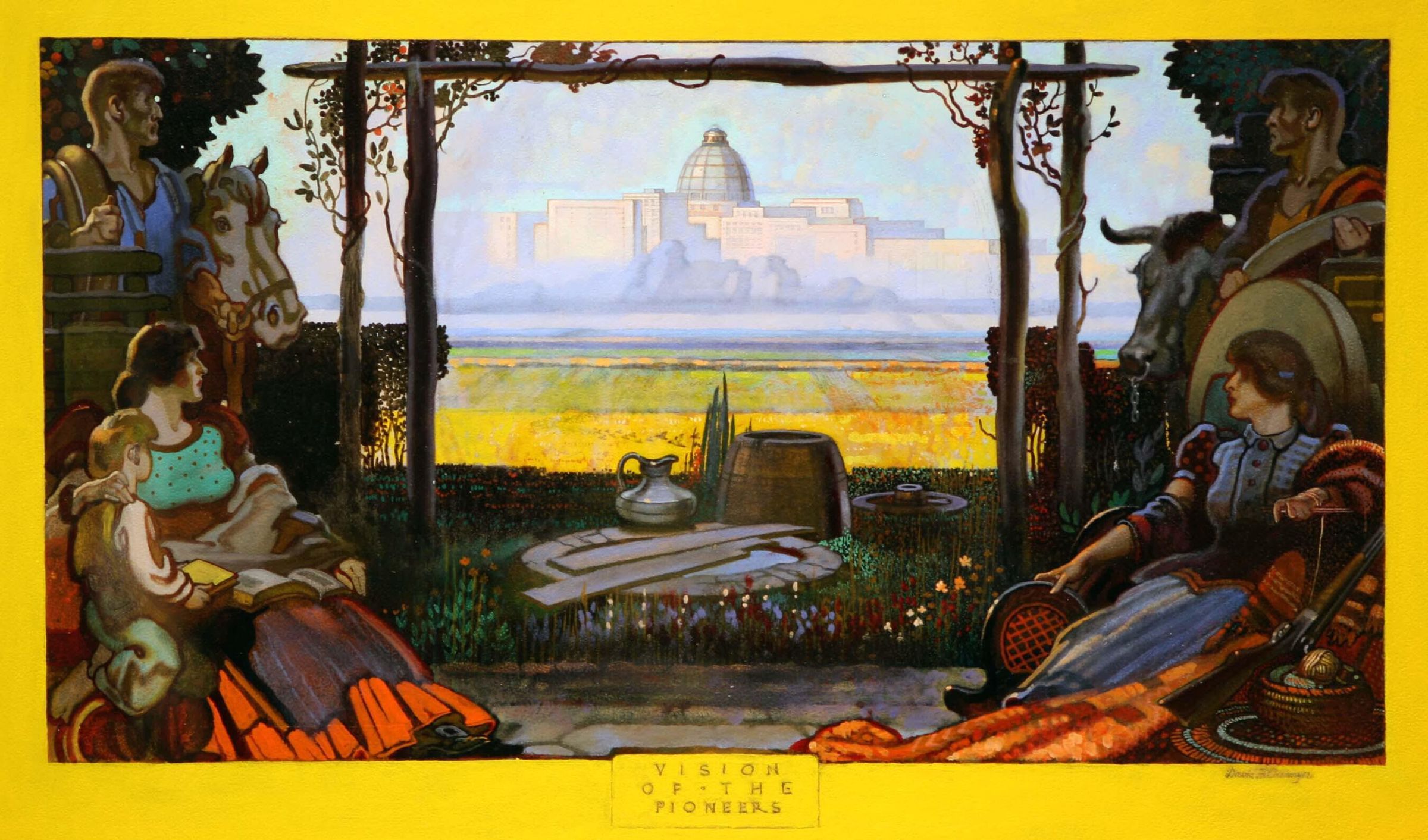Label
2024, “In This Place: American Dreams”
In David Hicks Overmyer’s Vision of the Pioneers, archetypal white figures stare out over a golden expanse of prairie toward a futuristic view of the city of Topeka. The men are flanked by the beasts of burden that helped to create the vista of fields and buildings on which their gaze is focused. The women, meanwhile, are surrounded by symbols of female industry: children, fabric arts including knitting and quilts, and books likely intended to represent biblical reflection and instruction. It is a beautiful image, a prototype for a proposed mural celebrating the artist’s hometown, the capital of Kansas. The figures are bathed in the golden light of the framing yellow border, and the verdant grassland extends far into the distance. The city, bustling with its large buildings and the new ultramodern dome of the statehouse, rises from the field and becomes one with the heavens. The city, too, is bathed in a prosperous yellow glow. The violence that has been done to the Native peoples and the land itself to create this “vision” of white settler colonialism is missing from the image, except for the presence of a rifle that rests against the quilt in the lower right-hand corner. The aspiration of place evoked here is of an idealized future made possible by a romanticized past.
—Dr. Kelly Erby, Dean of the College of Arts & Sciences, Washburn UniversityLabel
This study for a proposed mural visualizes what 19th-century Euro-American settlers imagined when they viewed the Kansas landscape. Arranged in statuesque poses that frame the composition, two men, two women, and a child pause from their toil to dream of the future. In their vision, a grand Topeka skyline looms over a golden field. Notably absent are those who inhabited the region prior to the settlers, including the Kaw, Osage, Wichita, and Pawnee peoples and many other tribes.
